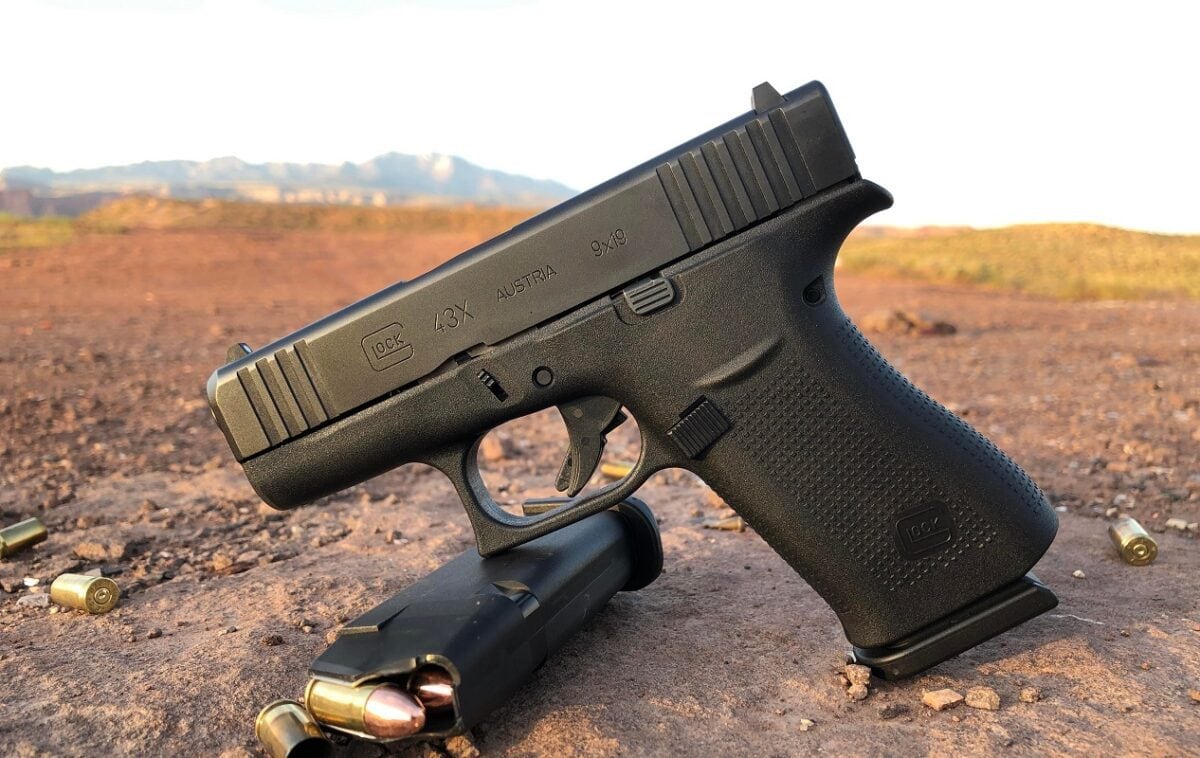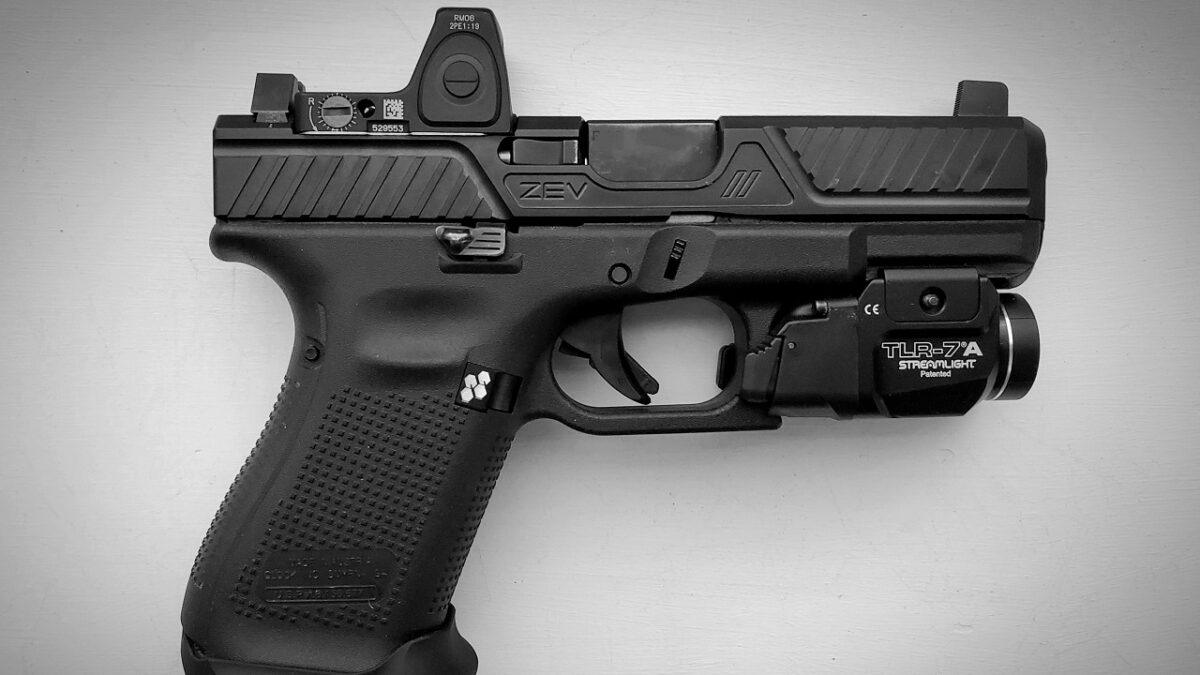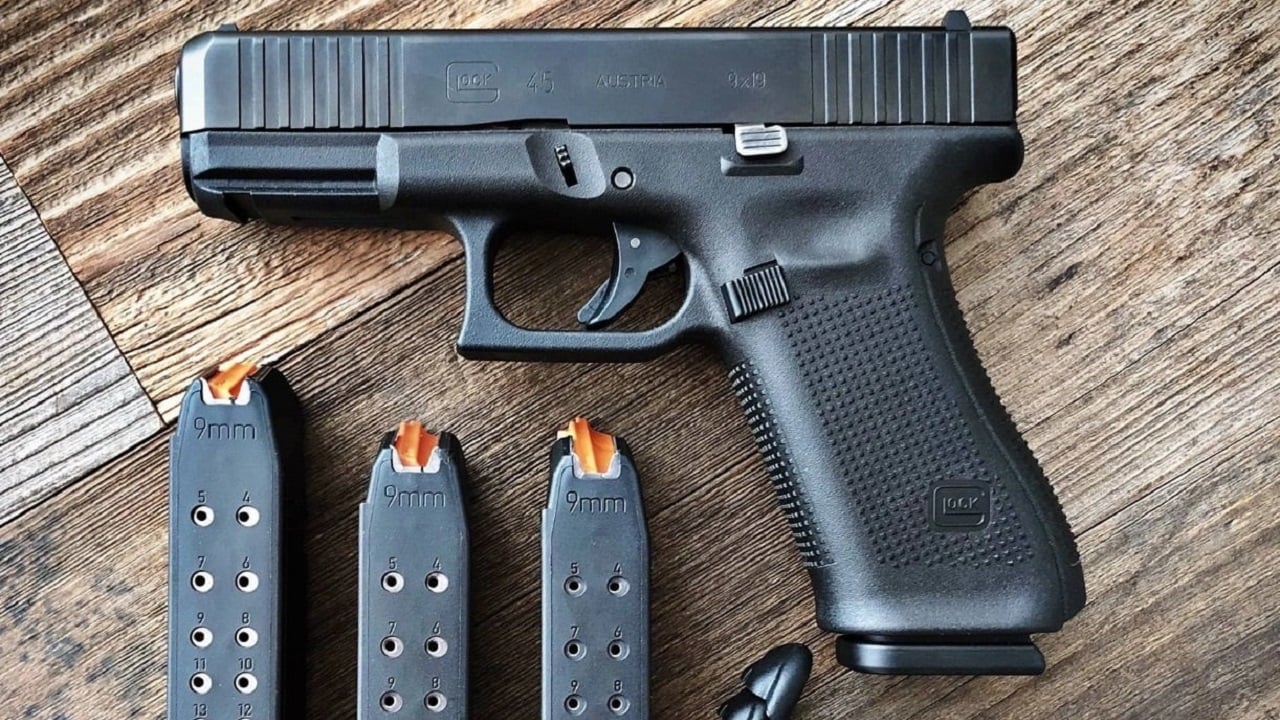Since I’ve written multiple articles singing the praises of Glock pistols – especially the Glock 17 9mm – I’ve been asked the following questions: “Are Glocks the most reliable handguns ever?” and “Do you really have to clean a Glock pistol?” My short answer to both questions is a qualified “Yes.” Lemme ‘splain …
Almost Indestructible … But Not Quite
With the Glock 17 in particular, its Timex-like near-indestructibility is the stuff of legend. The foundations for the legend were laid in the early 1980s by the Austrian Army, who conducted torture tests such as freezing the gun in a solid block of ice and the opposite extreme; subjecting the gat to temperatures over 212 degrees Fahrenheit (100 degrees Celsius). The G17 was unfazed. Then in the late 1980s, Miami (Florida) PD’s then-armorer Paul Palank, an old-school revolver-oriented guy, needed to convince himself to approve the pistol for Departmental adoption. He conducted his own torture tests, which included dropping the pistol from a helicopter at an altitude of 400 feet. Long story short: pistol passed, Paul impressed, Glock approved.
And then there’s the Chuck Taylor Glock 17 story, Beginning in 1990, the late Capt. Taylor proceeded to put 10,000 rounds through the gun without cleaning it, yet the gun jammed nary a single time. Fast-forward to 2018, and by this time Mr. Taylor had put 250,000 rounds through it, yet not only was it still functional, but it was also still accurate too.
And then there’s the gun’s Tenifer finish, which makes it more rust-resistant than stainless steel.
Alas, all is not perfect in Glockville, as any manmade product can and does fail. In the case of the Glocks, that seems to be especially true of the larger-bore Glocks, particularly in 10mm and .40 S&W, with their infamous “kabooms,” which, as Sage Datko explains, “occurs when a round and casing separate and a piece of the casing is dislodged.” Culprits can include clogging from lead ammo and reloaded ammo that’s overloaded.
Cleaning: Better Safe Than Sorry!
So then, now that we’ve established that Glocks aren’t truly infallible, that in turn leads me to say, yes, you should clean your Glock at least once in a while. Being low-maintenance definitely is a huge plus. Just because you can neglect a Glock for longer than, say, a SIG, Beretta, or M1911, that doesn’t mean you should push your luck. The stories of the torture tests conducted on the G17s and their survival are truly impressive, but that doesn’t mean you’ll get the same results; as they say in the automotive business, “YMMV” (Your Mileage May Vary), or to use an even more universal truism, there’s Murphy Law: Anything That Can Go Wrong, Will.
So then, how often should you clean your Glock? For what it’s worth, the longest I’ve allowed my Glock to go between cleanings has been roughly 1,000 rounds; I typically do it maybe after every two or three range sessions. Other folks, like David Lane of Pew Pew Tactical, are most conservative about it: “A Glock is the AK-47 of pistols … it will keep on chugging no matter what you throw at it. But for us, we still field strip and at least wipe down after each range session. After about 1,000 rounds, we will do a detailed strip.”
Eh, 99 percent of the time, I leave detail stripping to experienced gunsmiths, and even then only when absolutely necessary and/or after waaaaaayyyyyy more than 1,000 rounds; in fact, the only time I’ve ever detail-stripped any of my guns was a Colt Series 70 Combat Commander that really needed it, and that was under supervision from a range staffer who knew the gun inside and out. But I don’t fault David for being cautious; more power to him.

Glock 43. Image Credit: Creative Commons.
As for the manufacturer’s recommendations, they also err on the side of caution:
“Your GLOCK pistol should be cleaned and lubricated:
When it’s brand new, before it’s fired for the first time
After each time it’s fired
At least once a month, if it hasn’t been used in that time
If it’s been exposed to rain, snow, perspiration, salt water, dirt, dust, etc.”
So then, what to use to clean the Glock? For convenience, you can go with Break-Free CLP (Cleaner Lubricant Preservative) – my go-to back in my active military days – which, as the product name implies, is a 3-in-1 solution. The only downside to CLP is that though it’s adequate, it’s also the proverbial “jack of all trades, master of none;” the viscosity required to perform the lube and preserve functions means that it doesn’t do as efficient of a job of breaking up gunk like a pure cleaning solvent such as Love Potion No. 9, er, Hoppe’s No. 9.
Then during my civilian law enforcement days, the then-manager of LAX Firing Range – who was also a reserve deputy sheriff at the time – tuned me on to M-Pro 7 Gun Cleaner, which is not a true solvent per se – “low odor, ammonia free, and non-flammable” as the manufacturer’s website states – and works amazingly. For lubrication purposes – and yes, the Glock does require only minimal lube, to the tune of a couple of droplets rubbed between thumb and forefinger – I recommend either M-Pro 7’s Gun Oil LPX, the aforementioned CLP, or Remington’s Rem Oil.

Glock 19 Gen 5 with some modifications. Image Credit: Creative Commons.
Hope This Helps!
Okay, fellow Glockophiles, what’s your own cleaning and lubing schedule for your pistols? Let us know in the comments, and Happy Shooting!
Christian D. Orr has 33 years of shooting experience, starting at the tender age of 14. His marksmanship accomplishments include: the Air Force Small Arms Ribbon w/one device (for M16A2 rifle and M9 pistol); Pistol Expert Ratings from U.S. Customs & Border Protection (CBP), Immigration & Customs Enforcement (ICE), and the Federal Law Enforcement Training Center (FLETC) Criminal Investigator Training Program (CITP); multiple medals and trophies via the Glock Sport Shooting Foundation (GSSF) and the Nevada Police & Fires Games (NPAF). Chris has been an NRA Certified Basic Pistol Instructor since 2011. In his spare time, he enjoys (besides shooting, obviously) dining out, cigars, Irish and British pubs, travel, USC Trojans college football, and Washington DC professional sports.

